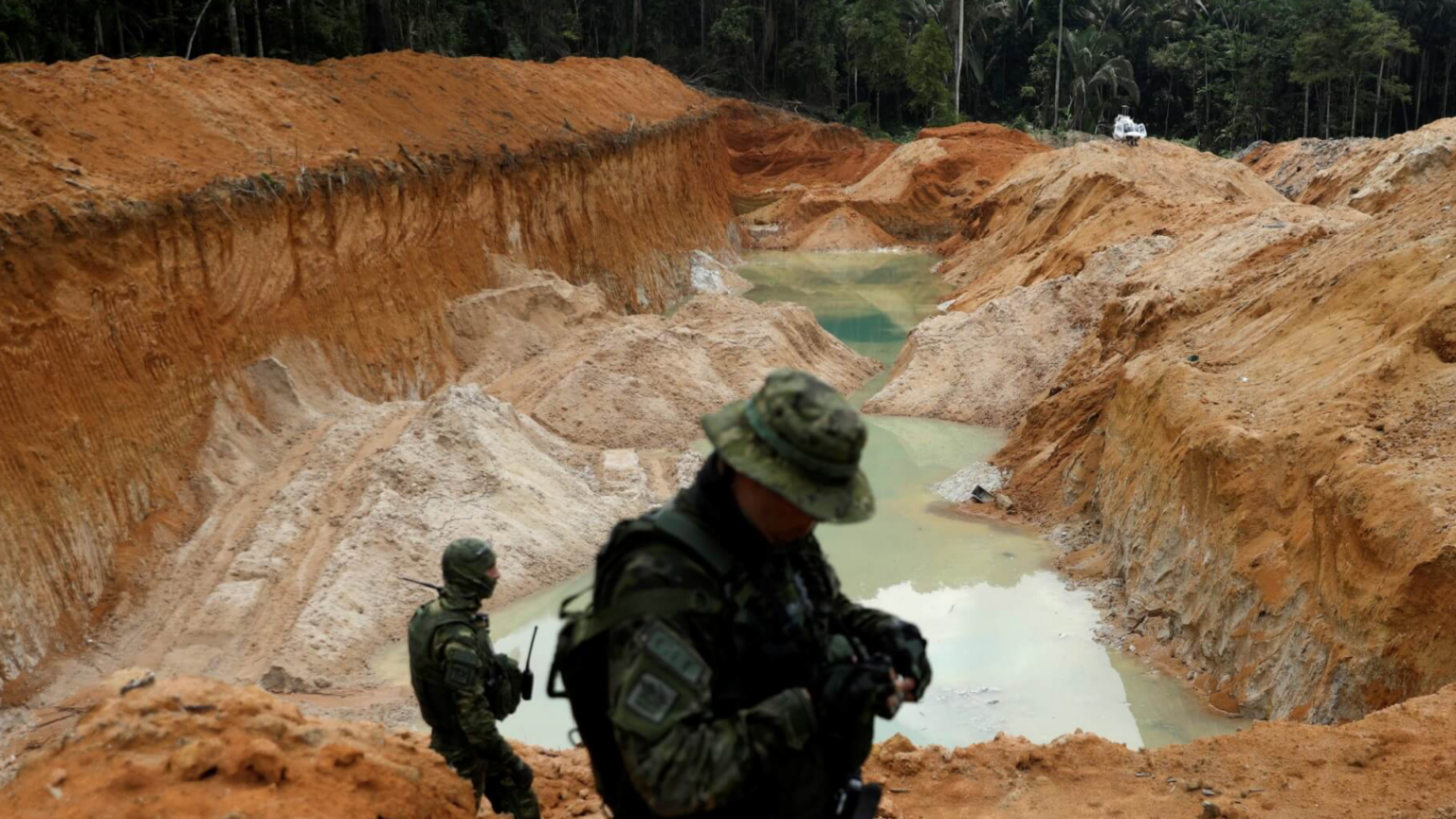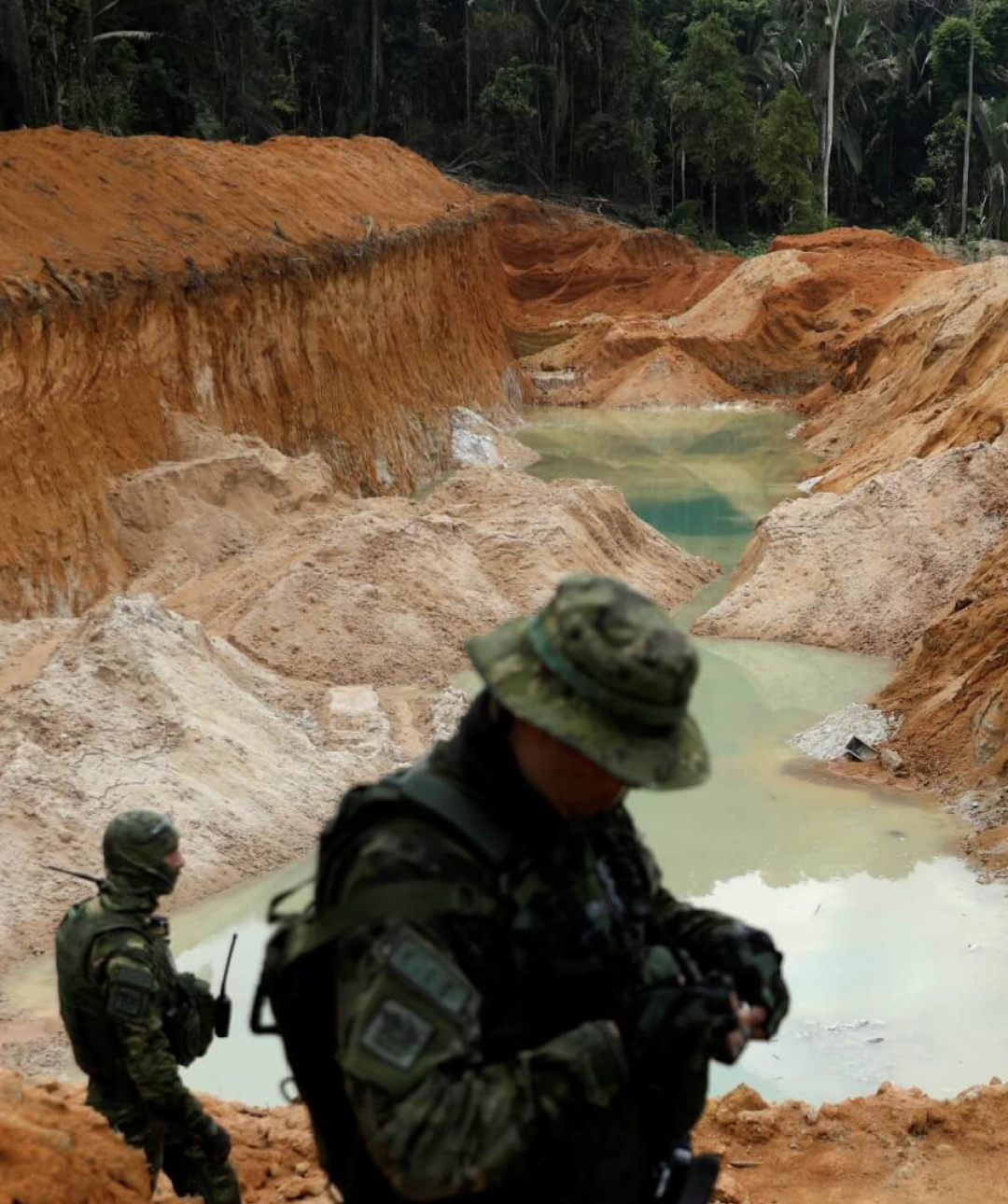

On July 5, 2022, Venezuelan indigenous leader and environmentalist Virgilio Trujillo Arana was murdered in broad daylight. Trujillo worked with indigenous movements seeking to defend the Amazon rainforest against illegal mining projects. He founded Ayose Hunuami, a group protecting indigenous lands from criminal gangs and mining, and served as the coordinator of the Indigenous Territorial Guard in the municipality of Autana in southwestern Venezuela. He was shot dead in the city of Puerto Ayacucho, which straddles the border with Colombia. Trujillo’s murder was not an isolated incident. Reportedly, on the day of his death, other members of the indigenous guard received threats to their lives. His killing was not an isolated event, but part of a worrying trend of attacks against environmental activists in authoritarian regimes in the region.
Latin America is among the most biodiverse regions in the world, home to an infinite array of fauna, flora, climates, and geographical features. According to the United Nations Environment Program, the region hosts around sixty percent of the global terrestrial life. Regions with such richness are typically home to various extractivist activities, such as explorations of oil, minerals, and natural gas. These activities can be seriously detrimental to these important ecosystems, and oftentimes fatal for those who advocate for them. In 2021, a report published by Global Witness revealed that three-quarters of killings of environmental activists in 2020 took place in Latin America, with approximately 165 killings taking place across nine countries.
However, in countries such as Honduras, Bolivia, and Venezuela, which significantly increased restrictions on the press and where corruption is rampant within law enforcement, these numbers only represent an estimate, with the actual figures being potentially far higher. Most authoritarian regimes across the political spectrum have resulted in terrible consequences for the environment, mainly because the repressive nature of these regimes allows them to silence the voices of environmental defenders who speak out. And although violations against environmental activists exist in democracies — Colombia and Mexico, for example, rank high among the countries with the most murders of environmental advocates — it is even more difficult and dangerous to prevent, prosecute, and report these crimes in authoritarian regimes. This is because there is no separation of powers between the judiciary and executive branch, and the presence of gangs and non-state actors working in connection with the state increases the difficulty of prosecuting these violations.
In Honduras, a country that in 2010 received the title of the deadliest country for environmental activism, more than 120 defenders linked with resistance to dams, mines, felling, and agricultural projects were killed between 2010 and 2017. Notably, armed men shot Goldman Environmental Prize recipient and defender Berta Cáceres inside her Intibucá home in 2016. Cáceres’ advocacy work was linked to the protection of the Gualcarque River, which has been threatened by the Agua Zarca dam, a joint Honduran-Chinese hydropower project. This project was primarily financed by foreign investors and coordinated by Desarrollos Energeticos S.A. (DESA), a Honduran company. Indigenous Lenca leaders oppose the Agua Zarca project due to the risk of the Guacalque River drying up as a result of the dam. For them, this river is sacred and essential for their subsistence. Should the dam be finished, a large part of the community would be left without water access, and irrigation for the farmlands would be completely cut.
In June 2022, DESA president, Roberto David Castillo, was found guilty and sentenced to 22 years for helping orchestrate Cáceres’ killing. It took Honduras six years of delayed investigations to sentence Castillo, which are still ongoing. In a letter to Honduran president Xiomara Castro, Human Rights Watch highlighted that the Civic Council of Popular and Indigenous Organizations of Honduras (COPINH) asserts there are more people involved in Berta’s murder, who the government is not properly investigating. The Honduran government allows private actors to act with impunity enabled by corrupt and inefficient law enforcement and judicial systems.
Killings are the most severe repression tactic against environmentalists in Honduras. In January 2022 alone, two environmental activists and indigenous leaders, Pablo Isabel Hernandez and Melvin Geovany Mejía, were killed by gunshot wounds. Similarly, there are numerous reports of physical attacks against environmental advocates. For instance, after opposing the hydroelectric project Los Encinos, two pregnant women were victims of beatings, causing one of them to have a miscarriage. This hydroelectric project is administered by Arnold Castro, the husband of Gladis López, who served as president of the ruling National Party from 2014 to 2017 and currently serves as the vice president of the parliament.
Direct attacks, a lack of accountability and transparency, and delays in processing times make justice for the victims almost impossible to attain. In the so-called Guapinol Case, eight members of the Municipal Committee for the Defense of Common and Public Goods of Tocoa were arbitrarily detained after protesting against the mining corporation Inversiones Los Pinares and their mining projects that endanger water sources and access for the local communities. They were put in “preventative detention,” even though the initial charges against them for illicit association had been dismissed. On February 10th, the Supreme Court granted them protection and a motion to release them, which took two weeks to resolve.
In Bolivia, on the other hand, the murder of defenders is far less common, but intimidation toward environmental activists is significant and can take many forms. Under Evo Morales’ competitive-authoritarian regime, presidential decrees allowing for the exploration and extraction of fossil fuels within the limits of protected areas further legalized deforestation. This happened while Morales presented himself as a champion of the rights of nature and indigenous people at the international level. In fact, Bolivia’s indigenous leaders and environmental activists constantly called out Morales’ rhetoric as a mere facade that masked his anti-environmental policies, which harmed sacred and legally protected areas and the health and well-being of indigenous people. This became evident in 2019 when massive fires spread in the Bolivian Amazon. While Morales staged a photo-op dressed in a fire suit and seemingly aiding the response efforts, his reaction to the fires was delayed. In the first three weeks of the fires, he prioritized political activities such as a campaign tour, and he even mocked protests against government inaction on the fires. He called for an “environmental cabinet” and international cooperation only when up to 1 million hectares of land had already been burnt in the department of Santa Cruz.
In Bolivia, the most common tactic to silence environmental defenders is the regime’s use of the media to carry out smear campaigns, public stigmatization, and harassment against environmental activists. In late March 2022, state-owned media channels initiated smear campaigns against several Bolivian journalists who had written about environmental issues by disseminating misleading information about them, which resulted in threats to their safety.
The Center for the Documentation and Information of Bolivia (Cedib) revealed that between January 2021 and late April 2022, there were 191 attacks on 38 reported victims linked to resistance toward unsustainable environmental practices. 24 of the 38 victims belonged to environmental grassroots movements. Cedib also published that aggressors in 90% of the cases worked for the state or had links to the governing party.
Additionally, criminal groups work within the limits of protected areas, and consistently attack volunteer firefighters and other activists who worked in the Amazon. Most recently, they killed a 16-year-old minor with seven gunshots. Victims don’t typically report crimes out of fear of retaliation, since criminal groups are believed to be linked to law enforcement agencies. Moreover, in early 2021, high-ranking officers and park rangers from the National Service for Protected Areas were illegitimately dismissed. Thus, the attacks from the government not only target individuals but also debilitate institutions designated to protect the environment.
In Bolivia, most victims of these attacks are women, who already face more risks than their male counterparts, and further stigmatization when reporting instances of aggression. Even though the regime of Nicolás Maduro designated the Arco Minero — an area that is 12% of Venezuela’s territory and around the size of Portugal — as a mining development zone in 2016, news regarding increased instances of murder, kidnapping, human trafficking, and sexual assault within the context of mining activities are widely underreported. The Maduro regime exercises significant control over media channels nationwide, and the remote and inaccessible nature of the mines makes it almost impossible for the information to find a way out.
No institutions can guarantee the rights and safety of environmental advocates in Venezuela, making their work a matter of life or death. Members of environmental organizations in areas surrounding the mines are used to receiving threats, ranging from unsolicited texts to physical aggression and the looting of their headquarters. For that reason, many defenders in Venezuela work in silence, with the help of activists abroad who can spread information with less risk. When reporting looting and harassment, law enforcement agencies seldom react promptly and proportionately, and investigations are rarely carried out at all. Venezuela and Honduras have not ratified the Escazú Agreement. This treaty would guarantee full public access to environmental information and legal protection to the land and its defenders in Latin America and the Caribbean. Its ratification would reveal the Venezuelan regime’s murky information practices, mismanagement and corruption, and the economy’s dependence on extractivism.
A report published by NGO Provea revealed that from 2013 to 2021, 32 environmental defenders were killed in Venezuela, 21 of whom were killed by mining hitmen or guerrilla groups, and 11 by the Venezuelan Armed Forces (FANB). The report also reveals approximately 80 cases of harassment, repression, and violence against defenders. The location of these attacks coincides with territories most affected by illegal extractivist activities. These mines are contested between guerrilla groups and gangs, all under the approval of the FANB, who reportedly accept bribes in exchange for impunity. The control of the mines has severe implications for human rights. Forced labor and sex trafficking are a common occurrence, where women and children are most at risk of being sold for gold. However, these instances are difficult to report, and there is little data available on the numbers. Armed groups constantly engage in illegal mineral extraction and sales and increase mining activities. As such, the Arco Minero has become a lawless territory where corruption is rampant, the protection of criminals is the norm, and local communities are continuously displaced and abused.
Silencing environmental defenders is not a phenomenon exclusive to authoritarian regimes. However, basic democratic guarantees like separation of powers, judicial independence, freedom of the press, and freedom of expression make abuses against defenders easier to prosecute and investigate; thus, granting a more optimistic outlook on the pursuit of justice. As such, these abuses are more severe under totalitarian regimes. Defenders serve as a counterweight to the government and unscrupulous businesses that put profits above people and the environment, and in many instances, they play an important role in shaping legislation and policies that can better promote sustainable and fair practices. As such, calling for more transparent and inclusive governance through the promotion of democracy benefits environmental activism and the environment more broadly.
To that end, the Human Rights Foundation (HRF) launched “Defending the Defenders,” a series of panel discussions on the perils of environmental activism in countries ruled by authoritarian regimes. The series included a panel at the 2020 RightsCon Online examining the intersections between human rights, technology, and environmental advocacy, and a panel at the 2022 Oslo Freedom Forum with environmental defenders from authoritarian regimes, including Nicaraguan environmental lawyer Monica Lopez Baltonado.
Join us in helping save lives and stand up to tyranny.

Reach out with any questions or support needs.
Become part of our mission-driven team.
Find answers to commonly asked questions in our FAQs.
Hit enter to search or ESC to close